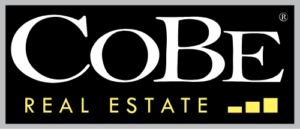In the business world, the rearview mirror is always clearer than the windshield.
– Warren Buffett
Hindsight may be 20/20 but for real estate property owners and investors, it isn’t good enough. If you’re listening to the chatter on social media and many news sources, the verdict on the new tax laws isn’t all that rosy. Is it based on reality or confusion surrounding the Tax Cuts and Jobs Act (TCJA)? We thought we’d talk to a local expert on taxes and how they affect real estate rental owners to help disseminate between the muck, the money, and the best ways to maneuver around the melodrama. Jennifer Johnson, owner of Perfect T Accounting on Mesa, Arizona provides some insights. Here’s how the changes in 2018 tax code line items could affect you during this filing and for years to come.
Write Offs Are Still On
The changes to residential property owners and the amounts available for mortgage interest and property tax write-offs do not apply to rental property owners. And it’s not a bad thing. Commercial property owners will still receive the same tax benefits as before the new tax code went into effect.
All the same standard write-offs you came to know, love and experience with owning residential rental property still exist including utilities, repairs and maintenance, yard care and maintenance, insurance, association fees (if applicable) and depreciation. But there is a caveat here.
SALT Deduction Can Sting
If you have rental property and also live on the property (i.e. duplex, triplex or other multi-unit properties), you will have to succumb to the new tax law modifications, which limits your property tax write-off at $10,000.
If that doesn’t sting enough, property tax write-offs now fall under what is known as the SALT deduction. Property taxes are just one element of SALT, which is comprised of state and local taxes. Within SALT the numbers will add up more quickly because it includes property taxes, and income tax or sales tax.
Arizona property owners continue to enjoy the benefits of categorically low taxes, compared to other states, perhaps offering a buffer to the impact of SALT.
The Floodgates Opened Up for Section 179 Deduction Guidelines
Maintenance and depreciation on a property are normally taken over time during ownership. But the Section 179 deduction allows property owners to completely expense an asset in a single year”, explains Jennifer Johnson. “Maintenance and repairs are normally expensed on the profit and loss statement of a business. However, major upgrades can be considered an asset and added to the depreciation schedule. For example, new flooring for a building would be considered an upgrade. This would be added to the depreciation schedule by using the 179 deduction. Just make sure this is in the best interest of the business financials for that year.”
Not every commercial property owner will stay within these income limits. There are actions that can be taken in these circumstances. Johnson details the options. “If a taxpayer goes over the limitation, they may want to lower their income by moving property ownership to one of their other businesses, move funds to trusts or pension plans, charitable donations, and use the 179 deduction or bonus depreciation.
2X The Bonus Depreciation
Good news for those with qualifying properties that meet the guidelines for taking bonus depreciation within the first year, instead of drawing depreciation out over the course of property ownership. In fact, as long as the property was placed in service after Sept. 27, 2017, and before Jan. 1, 2023, bonus depreciation jumps from 50 percent to 100 percent, if taken in total within the first year. For property
acquired prior to September 28, 2017, and placed in service before January. 1, 2018, bonus depreciation stands at 50 percent.
To meet the criteria, your subject property must provide for all of the following:
- Taxpayer’s property acquisition was not in any way due to a family relative.
- Taxpayer did not use the subject property before owning it.
- The person who sold the property to the taxpayer did not use the property before owning it.
- Taxpayer didn’t obtain the property through a member of a controlled group of corporations:
- Brother-sister group
- Parent-subsidiary group
- In combination of the above groups
- Tax basis of property is not configured through adjusted property basis, from seller or transferor
- Tax basis of property is not configured based on acquisition from a descendant
- The cost of the property doesn’t include basis of eligibility due to other property ownership held by taxpayer at any time
New to the Bonus Qualifiers
Entertainment industry players have now received an affirmative nod for their ventures. The TCJA now includes film, television and live theatrical production assets as a new type of qualifying property that could take advantage of the new 100 percent bonus depreciation, though all the criteria must be met to be deemed as a ‘qualifying’ property.
Tax Loss, PALS and Carryforwards
If you own more than one rental property, chances are you’ve experienced a tax loss, unless you purchased the property with equity built in, have minimal-to-none vacancy rates, minimal deferred maintenance to deal with, or have owned the property for quite some time.
Otherwise, you likely look forward to exercising your rights under PAL (passive activity loss) provisions. This allows you to deduct losses from a rental property as long as you have either sold the property that generated the losses or receive enough passive income from other sources to help offset the loss.
Here’s how it works now:
- Current year business loss can offset up to $250,000* of income from other sources**
- Above stipulation is applied after meeting the PAL rules
- Married taxpayers can go up to $500,000 of other income **Other income includes self-employment income, salaries, interest, dividends, and capital gains
While net operating loss (NOL) carryforwards were allowable for a two-year carryback and a 20-year carry forward, 2018 tax filings will see a change. “Now net operating losses can only offset 80 percent of taxable income in any given tax year but they can no longer be carried back. It can, however, be carried forward any number of years. With these changes, a careful look at a company’s income for the past few years should be considered. Revisions cannot usually be made when a company elects to carry forward or back, but a revision to this rule allows you to revisit tax returns from 2014 to 2017 to assess whether amending those filings is warranted.”
Like-Kind Isn’t Personal Anymore
Many businesses utilize 1031 exchanges as a way to not only acquire new property, replacing sold property with like-kind property as a means to defer tax liabilities, but also in the acquisition of new equipment, deemed personal property.
For example, let’s say the owner of a landscape architect business also had a crew that would handle the design, development and planting of landscapes in addition to the maintenance of them. As such, the owner may own real property as his business headquarters but also own personal property as in a fleet of trucks for the staff.
Before the new tax code, he could sell his business real property and include the fleet of vehicles, and upgrade his properties (both structures, land AND vehicles) by purchasing another business through a 1031 exchange for real and personal property.
But this year, due to the changes in 2018 tax code, personal property can no longer be included in an exchange. There are exclusions to this if one part of a personal property exchange was exercised before December 31, 2017 but other parts of the same deal were not.
For all matters related to 1031 exchanges, both real and personal properties, it is best to consult with your real estate and financial advisors.
Don’t Pass Over the Pass Throughs
Good news on this! The tax you pay on real estate investment income has shifted in your favor. Johnson said, “The new 20 percent deduction applies to service businesses as well, for pass through entities, such as S-corps, partnerships and LLCs. But the IRS has a phase out of this deduction for couples whose qualified business income hits $415,000 (married and filing jointly); and $207,500 for single filers (or married filing separate). One more thing, if you are in a business partnership, divide the qualified income by two to figure the actual portion of income to be applied for that business owner.”
Professional Advice from Industry Experts Is Second to None
Like any business, there are knowledgeable people skilled at what they practice. Not every real estate property owner is an expert in all matters of the business, especially when it comes to the financial aspects and tax law. One wrong move based on misinformation and it could set you back.
Before you decide to buy, sell or renovate commercial property, check in with your trusted real estate broker, financial advisor and CPA to come up with the right course of action for you and your business. Consult with a Commercial Real Estate Professional Now

